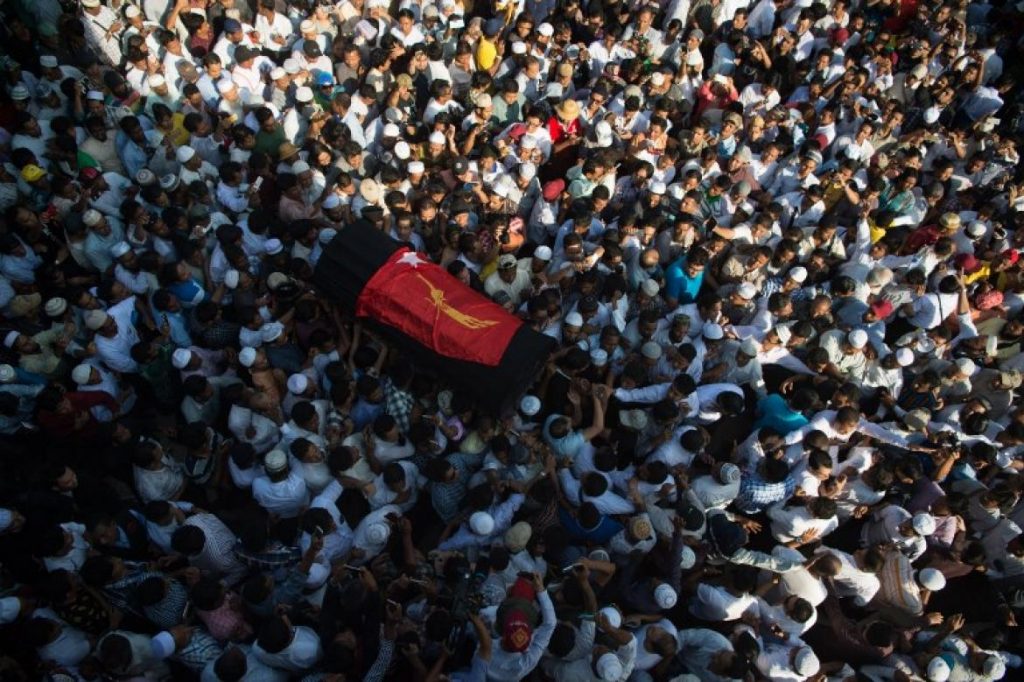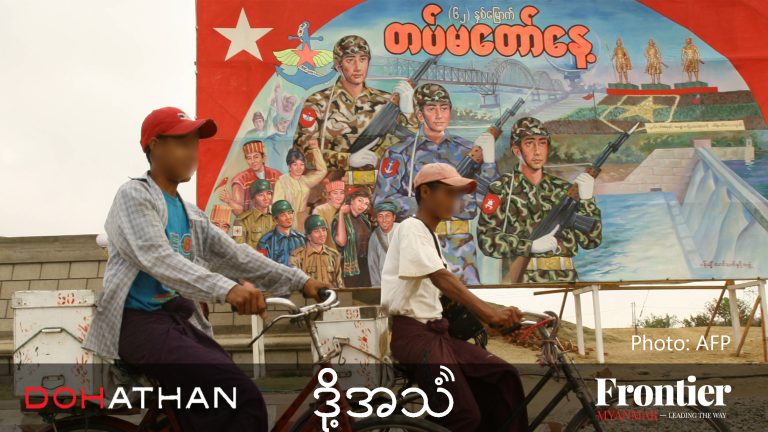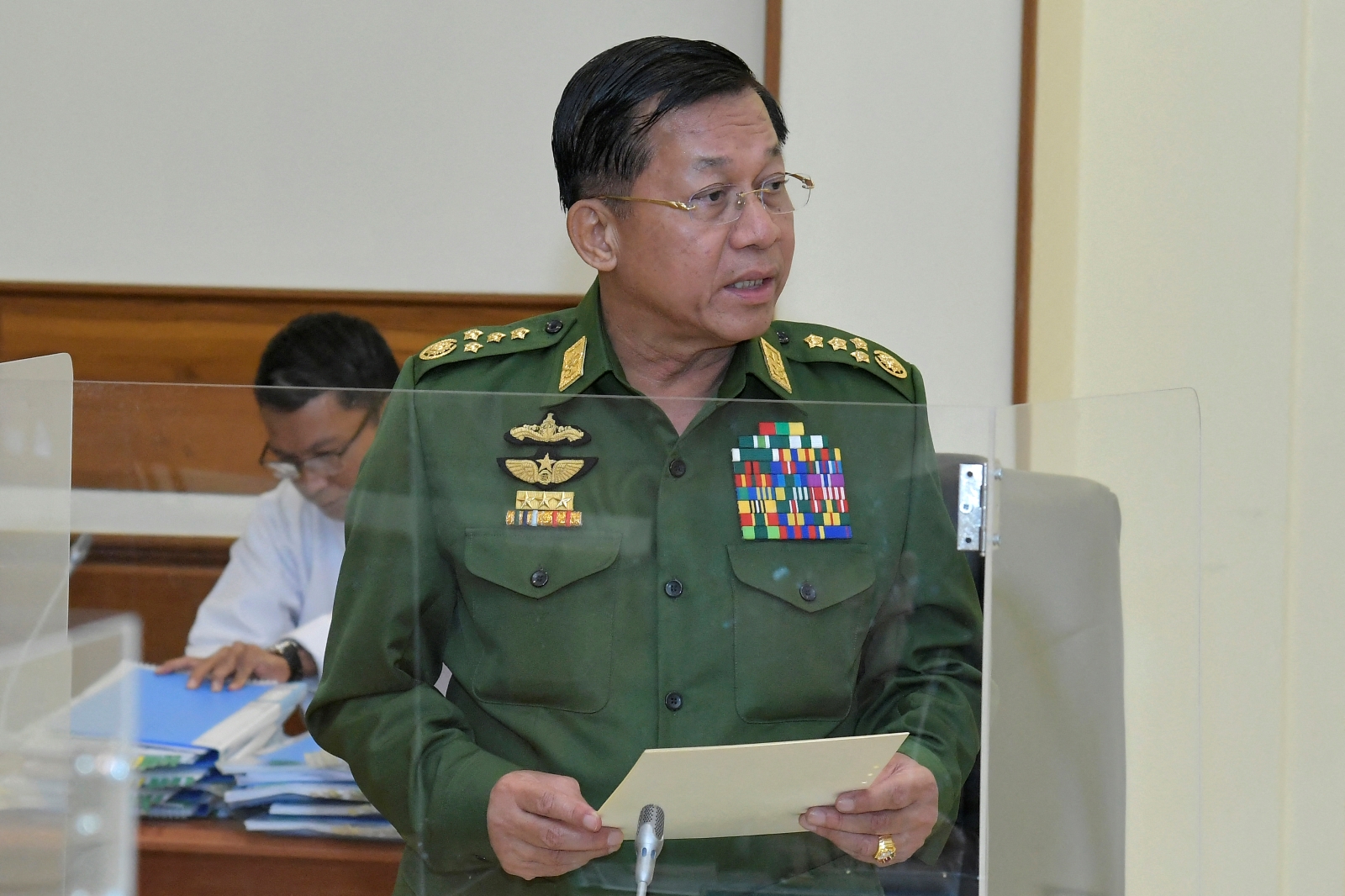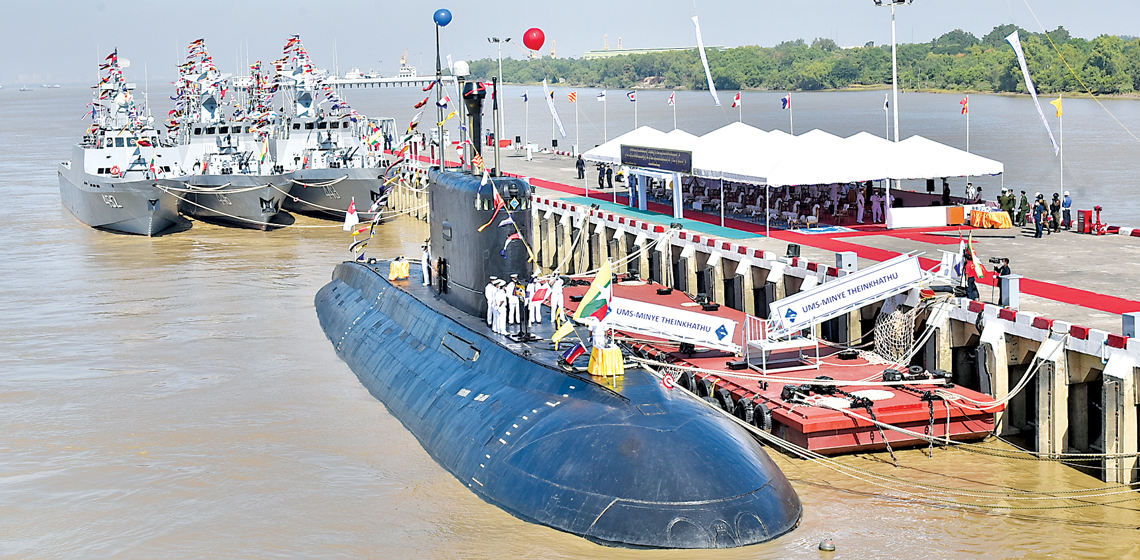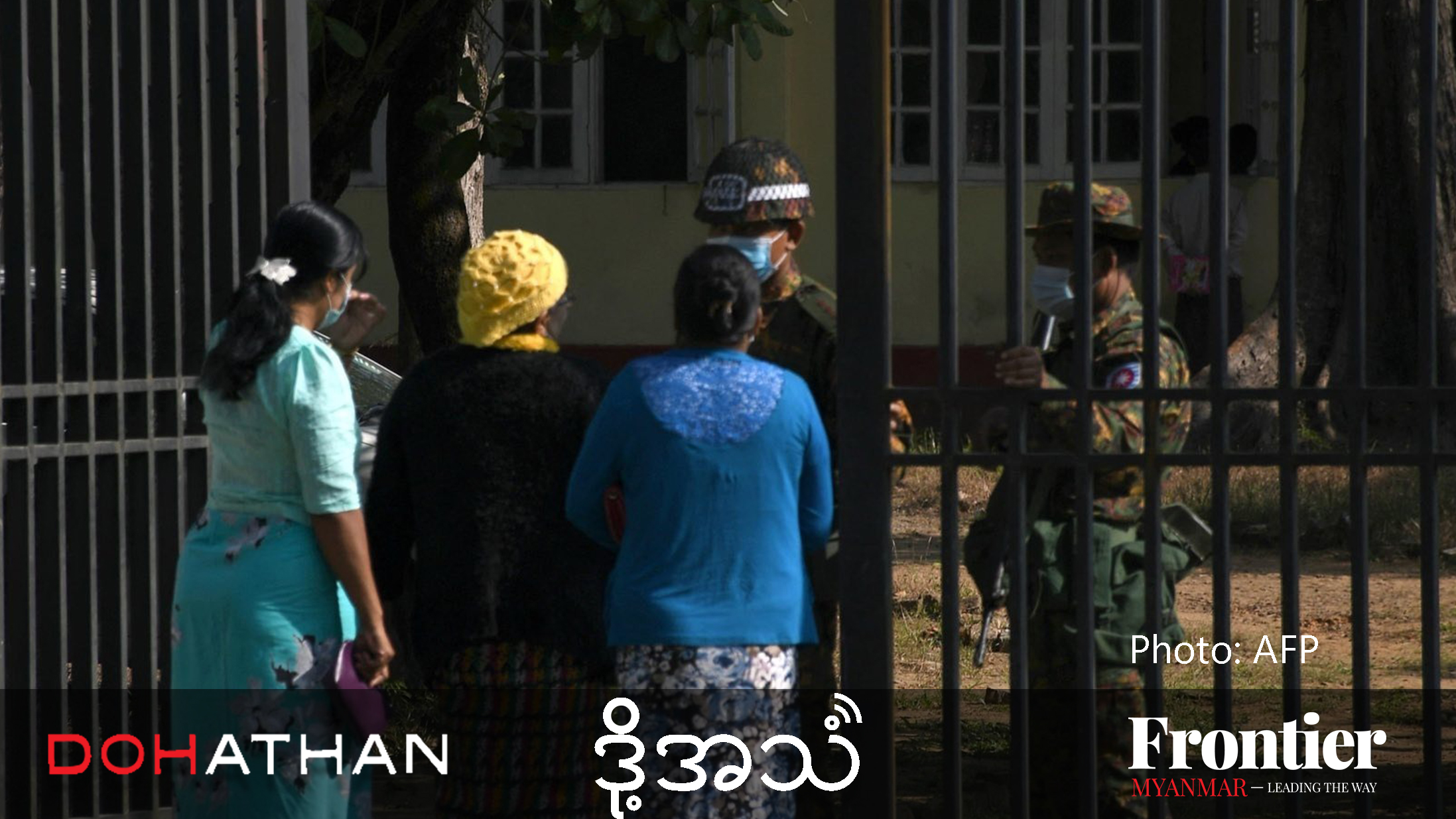A Yangon court will soon deliver judgment against four men on trial over the killing of NLD legal adviser U Ko Ni, while the alleged mastermind remains at large.
By YE MON | FRONTIER
TWO YEARS after the brazen assassination of prominent lawyer U Ko Ni at Yangon International Airport, the failure of the Myanmar Police Force to arrest the alleged mastermind continues to attract public criticism.
Final arguments by lawyers representing the four men arrested over the killing are due to be presented in Yangon Northern District Court on February 1, almost two years after the hearings began in March 2017.
Ko Ni was a constitutional expert, legal adviser to the National League of Democracy and prominent Muslim public figure. He has been credited with masterminding the state counsellor position for Daw Aung San Suu Kyi, which allowed her to assume high office in the face of the military-drafted 2008 Constitution, whose provisions barred her from the presidency.
Ko Ni was shot dead while cradling his grandson outside the airport late on the afternoon of January 29, 2017. He had just returned from Indonesia where he had participated in a leadership programme on democracy and conflict resolution as part of a delegation headed by the Minister for Information U Pe Myint.
Support more independent journalism like this. Sign up to be a Frontier member.
The suspected mastermind of the assassination, U Aung Win Khine, 47, who faces a charge of premeditated murder, has been declared a fugitive from justice by the court. He is the subject of an Interpol “red notice” issued at the request of the Myanmar police.
The suspected gunman, U Kyi Lin, was arrested almost immediately after the killing. He is also accused of fatally shooting a taxi driver while trying to flee the airport. He has been charged with premeditated murder and the illegal possession and transport of firearms.
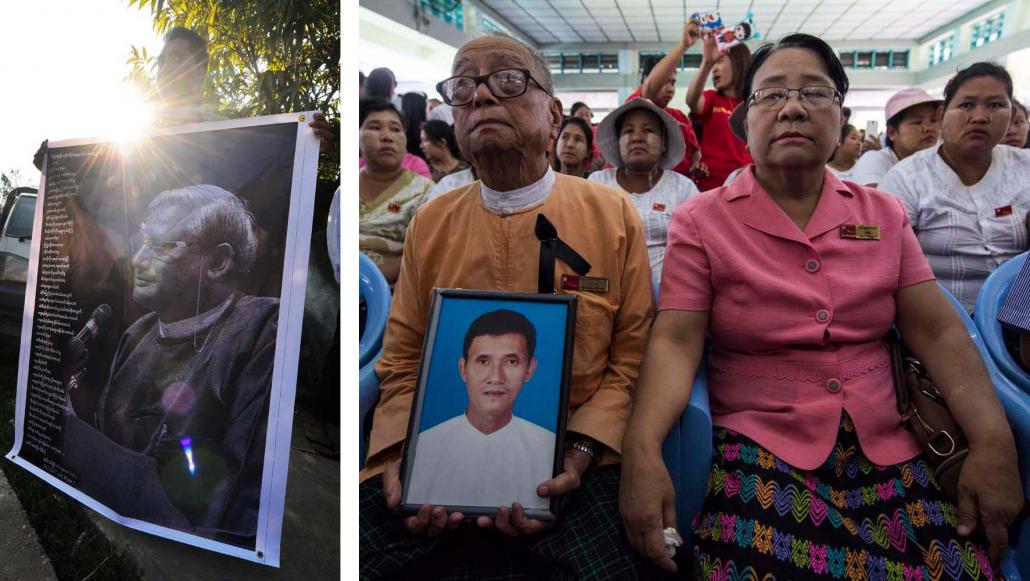
Mourners hold pictures depicting slain lawyer U Ko Ni and taxi driver U Nay Win at their funerals in Yangon. (Steve Tickner | Frontier)
‘Eat while you can’
The other defendants in the case are former military officer U Zeyar Phyo and U Aung Win Zaw, who have each been charged with premeditated murder, and U Aung Win Tun, who was charged with harbouring an offender and was released on bail.
Aung Win Zaw, who is a brother of Aung Win Khine, has threatened to take legal action over allegations that he threatened journalists and prosecution lawyers when he used a Burmese expression that can be interpreted as a warning. The expression is “htamin wa aung sar htar”, which means “eat while you can”.
Aung Win Zaw denies the allegations and said he plans to sue prosecution lawyer U Robert San Aung under the Law Protecting the Privacy and Security of Citizens. Robert San Aung said that he had yet to receive notice of any lawsuit against him.
On one occasion last year, supporters of the defendants appeared at the court wearing T-shirts with the slogan “htamin wa aung sar htar”, prompting the Insein Township administration to file a complaint about it with the Yangon Northern District Court.
Robert San Aung says he has received many threatening phone calls since becoming involved in the case but had shrugged them off.
A lawyer for Ko Ni’s family, U Khing Maung Htay, told Frontier that he regarded the T-shirt slogan as a threat but said that he had not been threatened directly.
“I don’t know who they are and what their intention is,” he said of the group. “I do not know if they are wearing the T-shirts to threaten the court, the lead prosecutor or us [the family’s lawyers].”
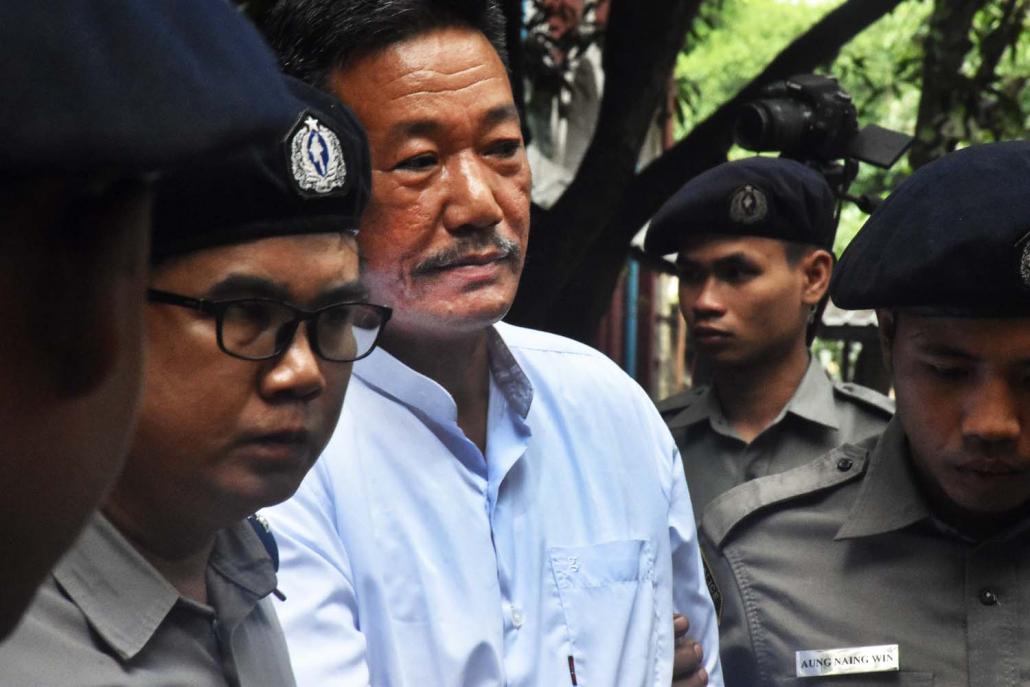
U Kyi Lin, the man accused of shooting dead U Ko Ni, appears at a hearing at Yangon Northern District Court on January 28, 2018. (Steve Tickner | Frontier)
A special tribunal
A Special Criminal Tribunal of three judges was established to hear the case but has been hampered by a transfer and a retirement. Most criminal cases are heard by a single judge.
Judge U Tin Htwe from Yangon Northern District Court, who first chaired the tribunal, has retired. Another tribunal member, deputy judge U Kyaw Htoo from Yangon Eastern District Court, has been promoted and transferred to Kayah State. Deputy Judge U Myo Khine of Northern District Court is the only original member of the tribunal that remains.
Judge U Khin Maung Maung from Northern District Court has been appointed the new tribunal chair and deputy judge U Myint Han from Eastern District Court has replaced Kyaw Htoo.
Robert San Aung, who is acting for the family of slain taxi driver U Nay Win, said he doubted that the changes would affect the court’s deliberations despite the tribunal’s new members not having been involved in the case previously.
He also said it was the first time he had experienced a Special Criminal Tribunal, which had itself helped to sustain public interest in a long-running case.
“People are interested in this case, especially in what the final verdict will be,” he told Frontier.
Lawyer Khin Maung Htay said he knew the judges well and was confident that justice would be served when the verdicts are handed down.
Justice delayed
As of January 22, there had been 102 hearings in the case, with delays lasting a week or more being common. The tribunal chairman and prosecution lawyers have accused the defence lawyers of creating unnecessary delays.
A total of 72 prosecution witnesses and eight witnesses for the defence have testified and more than 30 witnesses have been removed from the lists submitted by both sides.
Khin Maung Htay said the time taken for the trial was not unusual but complained that some defence witnesses were listed despite being unrelated to the case.
“I don’t know why the defence lawyers want them to testify,” he said.
Robert San Aung said some names on the witness lists submitted by the defence had lacked addresses and contact numbers, meaning the court could not issue summonses for them to testify. This was the case for Zeyar Phyo’s witnesses, he said.
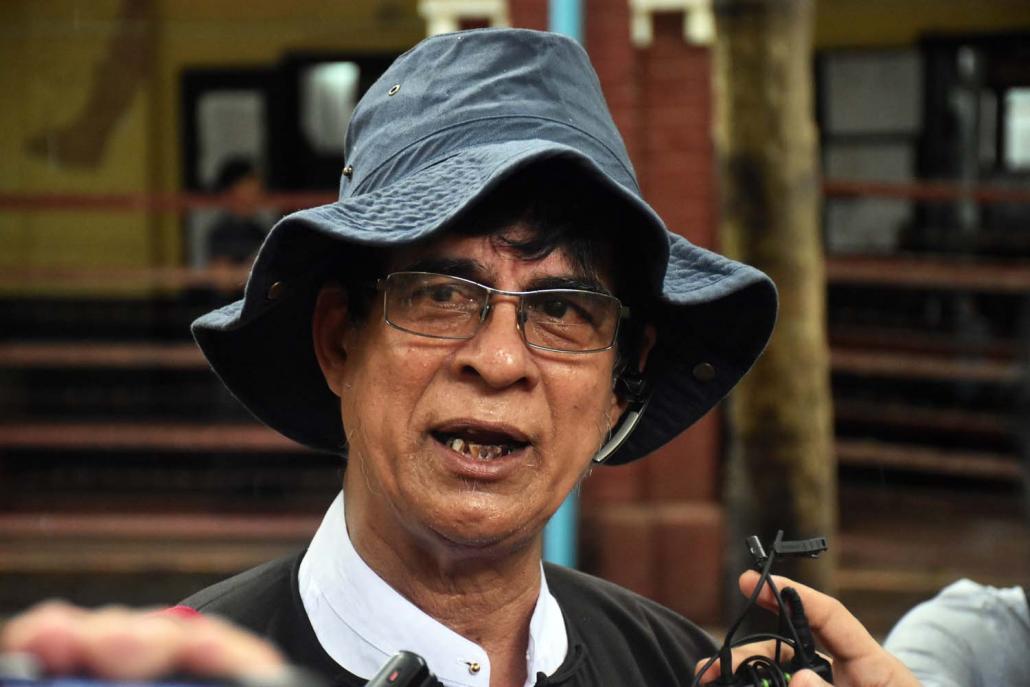
Lawyer U Robert San Aung speaks to reporters at the Yangon Northern District Court on 28 June, 2018. (Steve Tickner | Frontier)
Families struggle
The court case has been an ordeal for the families of Ko Ni and Nay Win.
Ko Ni’s eldest daughter, Ma Yin Nwe Khine, told Frontier that the family was frustrated by the case being drawn out.
“As a family member, I would like the trial to finish quickly,” Yin Nwe Khine said. “The trial has taken two years,” she said, adding that she wanted the court to deliver justice.
Nay Win’s wife, Ma Su Thet Khine, told Frontier on January 22 that she has struggled to raise her three children without her husband.
“It was a big loss for us,” she said of her husband’s killing. “I’m struggling to make a living; my children and I are facing difficult times.”
Su Thet Khine has also moved from where she had lived with her husband because people she did not know had asked about her and her family, making her feel insecure.
“Only relatives, my lawyer and friends know my new address,” she said.
Much of the public interest in the case stems from the close relationship between three of the defendants and the military.
Zeyar Phyo is a former military officer and the nephew of former Yangon Region advocate general U Han Htoo, who was arrested late last year for corruption and sacked.
Khin Maung Htay said that if Zeyar Phyo, AungWin Zaw and Kyi Lin were convicted of premeditated murder they would be liable to be sentenced to death.
The other defendant, Aung Win Tun, a brother of Aung Win Zaw, faces a maximum sentence of five years’ imprisonment if convicted of harbouring an offender.
Legal expert and practising lawyer Daw Zar Li Aye said she doubted that Kyi Lin would receive the maximum penalty if found guilty because he did not know the identity of the person he was asked to kill.
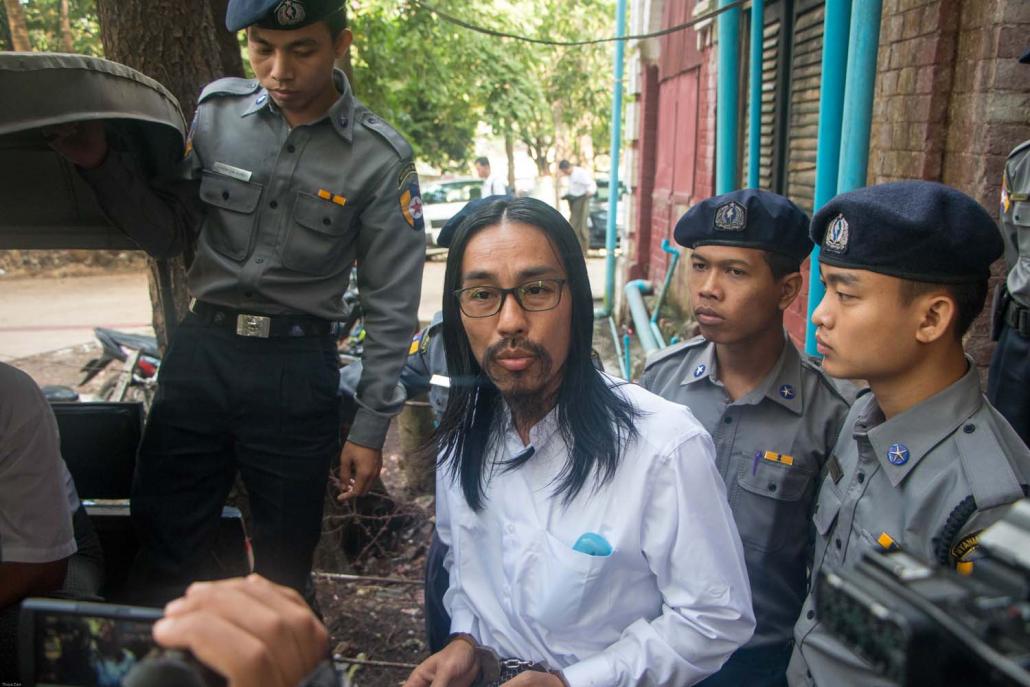
Defendant U Zeyar Phyo appears at a hearing at Yangon Northern District Court on January 10. (Thuya Zaw | Frontier)
An ‘emblematic’ case
Geneva-based human rights NGO the International Commission of Jurists, which has observed the court proceedings, said in a January 29 statement that it had “noted multiple instances of admission into evidence of testimony that appears to be irrelevant, failures of key witnesses to appear, and the long drawn out process of court proceedings.”
It called these flaws “emblematic of challenges in Myanmar’s justice system” in which “prosecutors and courts generally lack the independence and or will to effectively administer justice, particularly in politically sensitive cases”.
The ICJ also cited the shambolic nature of the police investigation, adding, “Lines of inquiry related to the political motivations for the killing, particularly considering the military links of many suspects, do not appear to have been pursued satisfactorily, nor impartially.”
It called for “a thorough and impartial investigation with a view to establish the facts, to deliver justice and to deter the repetition of similar crimes.”
Mr Sean Bain, legal adviser for the ICJ, said, “A credible justice process is required not only for U Ko Ni and his family, but to demonstrate the State will protect the right to life of all people including democracy advocates.”
“A crime of this nature stifles participation in the democratic process and so an effective justice process is imperative to deter its repetition,” Bain said.


